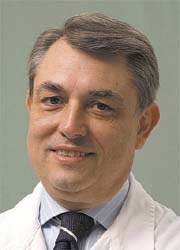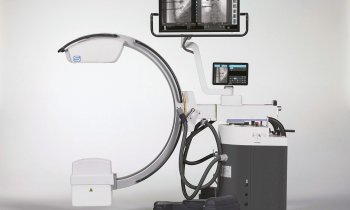Why European laboratorians benefit from the AACC Annual Meeting
When asked to write a brief note on why I found it important to attend the AACC Annual Meeting, particularly from the European perspective, my mind returned to the first time I attended an AACC meeting.

It was in New York, and provided my first opportunity to visit the USA. I was very excited at the idea of seeing the ‘New World’ and the ‘Big Apple’ and, of course, attending a scientific event organised by the most influential scientific society for clinical chemistry worldwide.
My expectations were amply met, and I greatly admired the outstanding Congress organisation, despite the incredible number of delegates. I was also impressed by the high standard of the scientific sessions and quality of presentations, many of which were delivered by ‘icons’ of modern medicine, such as J D Watson (1962 Nobel Prize in Physiology or Medicine for discoveries on the molecular structure of nucleic acids). Another aspect that I appreciated was the time dedicated to discussing all the presentations and the quality of these discussions. At the Poster session, I was particularly impressed by the high level of scientific discussion and the exchange of ideas that took place in front of each poster. This was, and still is, quite unusual in Italy and other European countries. However, I confess that I was really surprised to learn that seminars and scientific presentations would take place at 7.00 a.m., and was shocked to see these being made while people were having breakfast!
Throughout the years my reasons for attending the AACC Annual Meeting have changed, but some fundamental points remain. First, the plenary sessions provide a unique opportunity to look at the future not only of the discipline but, more importantly, of healthcare systems and the global environment in which laboratory services
are delivered. The Symposia and Interactive workshops (although I prefer to remember the ‘Edu-Tracks’) have always been interesting, but have also contributed to changing the delivery of laboratory services. For example, the story of cardiac markers is a paradigm of the change and improvements that laboratory medicine has brought in the management of acute coronary syndrome.
The Exposition, on the other hand, is always interesting, with its display of equipment, diagnostic systems and laboratory devices, but its importance to an ‘old’ laboratory professional like me has, in a way, decreased over time because there are always other opportunities to see and ‘touch’ innovative systems. However, it remains an important attraction and meeting point, particularly for people attending this event for the first time. From my perspective, however, the importance of attend the AACC Congress has increased, since it provides a unique opportunity to meet many scientists and colleagues from different countries. In an era of globalisation, the ‘de visu’ exchange of ideas and experiences is becoming increasingly important, and this meeting is, and will remain, a unique opportunity, as demonstrated by the number of meetings of the Scientific Boards of journals and organisations that occur year by year, before, during and after the AACC Meeting itself.
Let me conclude with another personal anecdote. The first time I was invited to deliver a lecture in a session of this meeting, I had mixed feelings, because there was no way of escaping criticism – or low scores in questionnaires completed by participants! Although I felt honoured to be invited, I was not that open to criticism. ‘The world is flat’– of this we are sure and there is no doubt about this – but there are still many good reasons for European laboratorians, including Italians like me, to continue to attend the AACC Annual Meeting!”
01.07.2008






